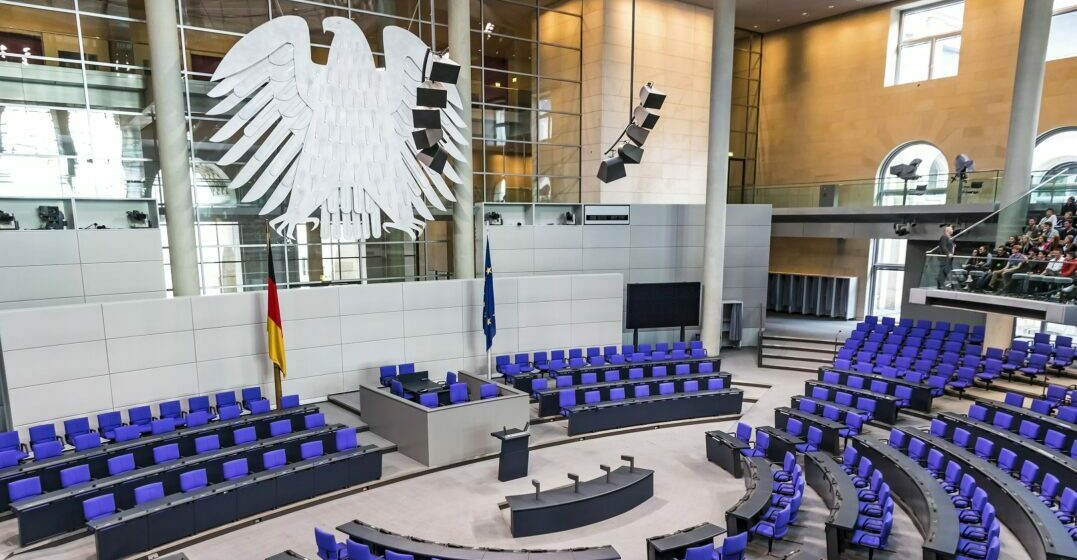A guide to the political system in Germany
Published on May 12, 2022 / Updated on January 9, 2024
If you live in Germany, one of the things you should be aware of is the political system in Germany. After all, it determines a lot of aspects of everyday life, from fundamental rights to education and healthcare. Watching the news will also make a lot more sense if you know the words associated with politics and the institutions they stand for. If you’re reading about the political institutions in Germany for the first time, it might be overwhelming. But don’t worry. We are here to shed light on the main points. So how does the German political system work?
Yes! Indeed, the political system in Germany can be explained by one guiding principle: the protection of democracy. The country represented by the flag in red-black-gold is a federal and constitutional democracy with an independent legislative, executive and judiciary. The German Basic Law (Grundgesetz) guarantees fundamental rights and places all government powers in the hands of the people who vote their delegates into the two chambers of the German parliament, namely the German Bundestag and the Landtage (federal state parliaments). This reflects the organization of the German state in the form of a federal republic. In the German political system, the government in Berlin executes the federal powers that overrule the regional powers of the federal states (Bundesländer) in matters of national interest. Splitting powers between the state and the federal states prevents an accumulation of power and thereby protects democracy.
The German government is structured as a federal state and parliamentary democracy. The government system in Germany relies heavily on two institutions: The German Bundestag and the German Bundesrat. And if you ask who is the most powerful person in Germany, you will find a difference between the head of government and the head of state, the Bundeskanzler (chancellor) and the Bundespräsident (president).
The Bundestag and Bundesrat are chambers of the German parliament and pillars of the government system in Germany.
The Bundestag is the most important of those two chambers of the German parliament. Delegates to the Bundestag are elected by the German voters. The Bundestag itself elects the chancellor while the chancellor and the president appoint the federal ministers, usually from among the members of the Bundestag. The Bundestag also proposes legislation, schedules budgets and votes on foreign policy issues.
The Bundesrat reflects the regional votes on a state level as its 69 members are not elected but recommended by the 16 provincial governments.The Bundesrat, therefore, acts as the regional check on the distribution of state power, agreeing to the legislation proposed by the Bundestag and blocking federal laws that undermine regional power. For changes to the Basic Law, both chambers are needed.
The Bundeskanzler*in and the Bundespräsident*in are the head of the political system in Germany..
The Bundeskanzler is proposed by the Bundespräsident, elected by the Bundestag, appointed again by the Bundespräsident and then sworn in by the Bundestagspräsident, the president presiding over the Bundestag. The Bundeskanzler is the most powerful person in the German political system and the head of government for the next four years.
The Bundespräsident is elected every five years by the Bundesversammlung (federal assembly). This institution consists of an equal number of delegates from the Bundestag and delegates elected by the regional parliaments (Landtage). Except for his role in the election of the Bundeskanzler and for his right to veto legislation, the concrete powers of the head of state are very limited.
Due to the federal structure of the political system in Germany, there are four types of elections:
The most important elections are those to the Bundestag. Voters cast a first vote for a specific candidate and a second vote for a party list.
All German citizens vote freely, equally and by secret ballot. The voting age is 18 (16 in some federal states for municipal elections). European citizens can vote in municipal and European elections. Don’t forget to bring your polling card and ID to the polling station!
The federal and constitutional republic in the heart of Europe guarantees fundamental rights and the benefits of a welfare state not only to its own citizens. As a member of the European Union, EU citizens have the right to move freely to Germany, reside, work and even partake in political power.
The political system in Germany is designed to protect democracy. The power is divided between federal states and the government in Berlin which is reflected in institutions like Bundestag and Bundesrat, Bundeskanzler and Bundespräsident. Through voting in four types of elections, the ultimate power of decision comes from the people.
